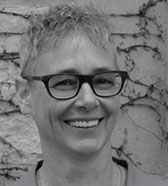Mary Weismantel
Professor, Co-Director of SPAN (the Sexualities Project at Northwestern)

- mjweis@northwestern.edu
- 847-491-4822
- 1812 Hinman Avenue, #105
Not currently accepting PhD students
Research and teaching interests
Americas, indigeneity, Andes; gender/sexuality, race/racism and inequality, human/nonhuman; ontologies, decoloniality; food studies; kinship
Affiliations
Gender and Sexuality Studies; Latin American and Caribbean Studies; Performance Studies; Department of Spanish and Portuguese
Biography
Mary Weismantel is Director of SPAN (the Sexualities Project at Northwestern) and Professor of Anthropology at Northwestern University. She has previously been Director of the Latin American Studies Program, Director of the Gender and Sexualities Studies Program, and Chair of the Department of Anthropology. Dr. Weismantel writes about the ancient and contemporary cultures of the Indigenous Americas with a focus on sex, gender, and material life in the Andean region of South America. Her recent work focuses on the ancient Indigenous past using a method that bridges auto-ethnography, archaeology and art history. This research resulted in Playing with Things: The Moche Sex Pots (University of Chicago Press 2021), which was awarded the Association for Latin American Art-Arvey Foundation Book Award for best book in Latin American Art History in 2022, as well as several articles, including “Towards a Transgender Archaeology: A Queer Rampage Through Prehistory”, and “Moche Sex Pots: Reproduction and Temporality in Ancient South America”. She has previously published two books and numerous article based on her ethnographic research in South America, including the award-winning Cholas and Pishtacos: Tales of Race and Sex in the Andes, and articles including “Making Kin: Kinship Theory and Zumbagua Adoptions”.
Selected publications
Books
2001 Cholas and Pishtacos: Tales of Race and Sex in the Andes. Chicago: University of Chicago Press. Spanish translation: Cholas y pishtacos; relatos de raza y sexo en los Andes, 2016. With new introduction by the author and preface by Osvaldo Benavides. Cristobal Gnecco, translator. Editorial Universidad de Cauca, Colombia/Instituto de Estudios Peruanos, Cuzco, Peru.
1989 Food, Gender and Poverty in the Ecuadorian Andes. Philadelphia: University of Pennsylvania Press. Paperback edition, 1992. Spanish translation: Alimentación, género y pobreza en los andes ecuatorianos, Biblioteca Abya-Yala, 1994. Re-issued by Waveland Press, 1998.
Articles
n.d. The Lanzón’s Tale: Animist Practice and Political Authority at Chavín de Huantar. To appear in the volume Sacred Matter: Animism and Authority in the Pre-Columbian Americas. Steve Kosiba, John Janusek and Tom Cummins, eds. Washington, D.C.: Dumbarton Oaks.
Cuni Raya Superhero: Ontologies of Water on Peru’s North Coast. To appear in the volume Place, Landscape, and Power in the Ancient Andes. Edward Swenson and Justin Jennings, eds.
2015 Looking like an Archaeologist: Viveiros de Castro at Chavín de Huantar. Journal of Social Archaeology 15(3): 139-159.
Encounters with Dragons: The Stones of Chavín. RES: Journal of Anthropology and Aesthetics 65-66: 37-53.
Many Heads Are Better than One: Mortuary Practice and Ceramic Heads in Ancient Moche Society. In Living with the Dead in the Andes. Izumi Shimada, ed. University of Arizona Press. 76-100.
2014 Substances: ‘Following the material’ through two prehistoric cases. Co-authored with Lynn Meskell. Journal of Material Culture 19(3): 233-251.
2013 The Hau of the House. In Vital Matters: Religion in the organization and transformation of a Neolithic Society. Ian Hodder, editor. Cambridge University Press. 259-279.
Towards a Transgender Archaeology: A Queer Rampage Through Prehistory. In The Transgender Studies Reader, Vol. 2. Susan Stryker and Aren Aizura, editors. Routledge. 319-334.
2011 Obstinate Things. In The Archaeology of Colonialism, Gender, and Sexuality. Barbara Voss and Eleanor Casella, editors. Cambridge University Press. 303-323.
2009 Have a Drink: Beer and History in the Andes. In Drink, Power, and Society in the Andes. Justin Jennings and Brenda Bowser, editors. University Press of Florida. 257-277.
2008 Cities of Women. In The Ecuador Reader: History, Culture, Politics. Steve Striffler, editor. Duke University Press. 359-370. Previously published in Gender in Cross-Cultural Perspective, 4th edition.
Caroline Brettell and Carolyn Sargent, eds. Prentice-Hall. 120-133.
2007 Does The Animal Exist? Toward a Theory of Social Life with Animals. With Susan Pearson. In Beastly Natures. University of Virginia Press. 17-37.
2006 The Ayllu, Real and Imagined: The Romance of Community in the Andes. The Seductions of Community: Emancipations, Oppressions, Quandaries. Gerald Creed, editor. School of American Research Press. 77-99.
2004 Moche Sex Pots: Reproduction and Temporality in Ancient South America. American Anthropologist 106(3):495-505.
White. In Fat, Don Kulick and Anne Meneley, eds. Penguin. 45-62.
1998 Race in the Andes: Global Movements and Popular Ontologies. Co-authored with Stephen F. Eisenman. Bulletin of Latin American Research Vol. 17(2):121-142.
Editor, special issue of the Bulletin of Latin American Research on Race in the Andes, Vol. 17(2).
1997 White Cannibals: Fantasies of Racial Violence in the Andes. Identities 4(1): 9-44.
1995 Making Kin: Kinship Theory and Zumbagua Adoptions. American Ethnologist 22(4):685-709.
1991 Maize Beer and Andean Social Transformations: Drunken Indians, Bread Babies and Chosen Women. Modern Language Notes, 106:861-879.
1999 Sweet Interloper. Co-authored with Sidney Mintz. The Globalization of Food. Leonard Plotnicov and Richard Scaglion
Courses Taught
On Gender and Sexuality: Sexualities; Graduate seminar in Gender and Sexuality; Queer Reproduction; Interdisciplinary Methods in Gender and Sexuality Studies; Studying Ancient Sex; Social Science Methods in Researching Sexuality (team-taught); Sexualities; Gender and Culture; Gender and Sexuality in Latin America; Advanced Seminar in Gender Theory; Senior Seminar in Gender and Women’s Studies.
On Anthropology: Materialities; Ethnographic Writing; Art and Anthropology; Death, Dying and Remembrance (team-taught); Exchange Theory; Social Structure; Social History of Food; Qualitative Research Methods; Anthropological Theory; Introduction to Cultural Anthropology; Senior Seminar in Anthropology; Economic Anthropology of the Rural Third World; Myth, Ritual and Symbol.
On Indigeneity and Latin America: Genocide, Testimony, and Renewal: Native Peoples of the Americas(team-taught);Pre-Columbian Art; Gender and Sexuality in Latin America; Race in the Americas; Roots and Margins of Latin America; Ancient Americas; The Andes; Amazonia; Introduction to Latin America (team-taught); Circa 1500: Spain and the Americas (team-taught).
Interdisciplinary: Being Animal, Being Human.
